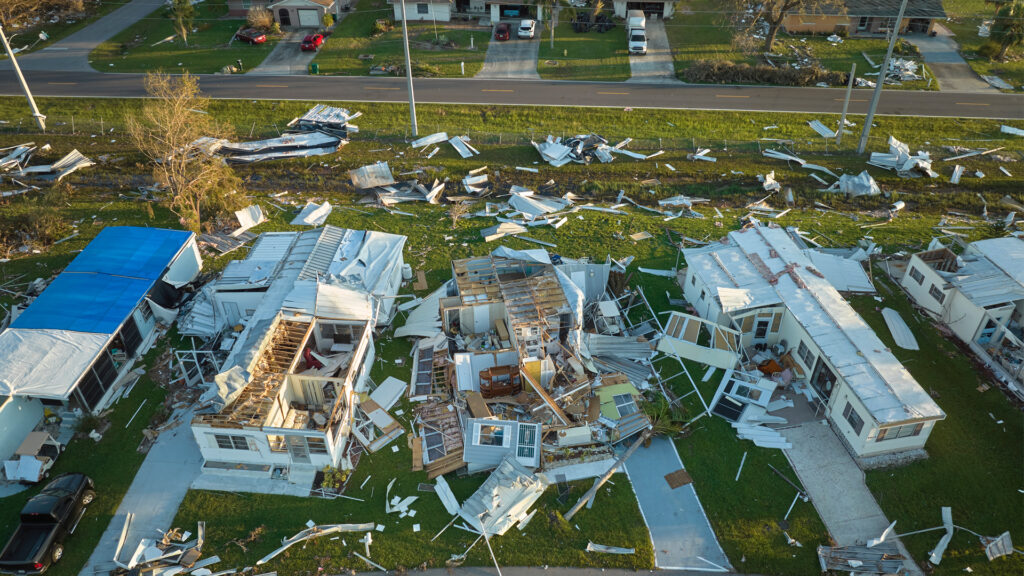By the Miami Herald Editorial Board
Florida Gov. Ron DeSantis brags about how many people are pouring into Florida. But all that growth isn’t necessarily a good thing.
That’s the conclusion of a report by a major global re-insurance company that draws links between the state’s soaring home insurance costs and the explosion of new residents, especially along the coast.
Do we even need a report to tell us that? It’s just common sense.
The more we build along coastlines, the more homes (and people) we put in harm’s way during a hurricane. Climate change isn’t helping, either: Warmer ocean waters, which are linked to stronger and wetter hurricanes, may increase the problem even more, the report by Swiss Re notes in a recent story by the Miami Herald. Plus, rebuilding older homes after a hurricane so they conform to new storm-resistant standards can be extremely costly, especially when that includes elevating a home several feet.
Gains slipping away
Those stronger building codes, imposed since 2002, have made homes better able to withstand storms, but the gains made in handling the wind and rain are being undermined by more people living in Florida, the report said.
And that, the report said, is a problem: “Reducing vulnerability by strengthening building codes . . . has been insufficient since the 1970s to compensate for expected losses from accompanying population-driven property value growth.”

There are some who say it’s incorrect to blame the ridiculously high home insurance premiums in Florida on population growth, saying that old housing is more to blame. Much of Florida’s housing stock is older. In the area that sustained a lot of damage during Hurricane Ian last year, about 69% of properties were built before 2000. Ian was the state’s most expensive storm so far, with a price tag of about $109 billion in damage.
Politicians, meanwhile, have long been pointing the finger at fraudulent insurance lawsuits. They say bad-faith lawsuits are a significant driver of premium increases amid an unstable insurance market that relies heavily on state-backed Citizens Property Insurance — the so-called insurer of last resort. It now has more than 1.3 million policies.
But regular people still haven’t gotten any relief in the costs of premiums. Florida lawmakers have met repeatedly in Tallahassee to address the insurance crisis but, afterward, they keep saying we have wait — a year? two? — to see the laws that they passed curb the problem.
Downside of ‘free’
Maybe the laws will, help — eventually. Old housing stock no doubt does contribute to the problem, as well. But we’re pretty sure the population growth in Florida is a factor, too. It’s just one that our leaders don’t want to confront, because that leads to a discussion of where to draw the line on growth. And that runs counter to the DeSantis narrative of Florida as the “free state.”
Insurance costs may force the issue.
As Vivian Young, communications director for the smart-growth group 1,000 Friends of Florida, told the Herald: “I think the state is reaching a tipping point and there’s going to have to be a really serious conversation about where it’s appropriate to develop, where we should be redeveloping and whether we should live in certain areas at all. . . . Just because you can doesn’t mean you should.”
Companies base their rates on risk in an area. Building codes are one way to reduce risk — and costs. But Young is right: Re-thinking whether to allow re-building in exceedingly high risk areas could help. It might even help a lot.
At the very least, we need to be talking about that.
This opinion piece was originally published by the Miami Herald, which is a media partner of The Invading Sea. If you are interested in submitting an opinion piece to The Invading Sea, email Editor Nathan Crabbe at ncrabbe@fau.edu. Sign up for The Invading Sea newsletter by visiting here.



